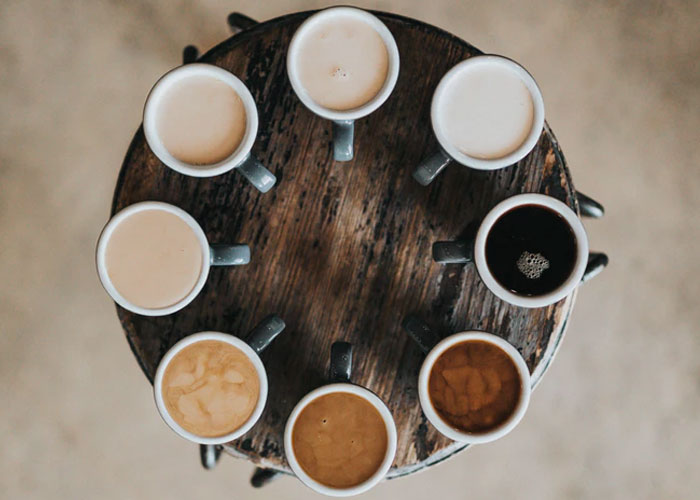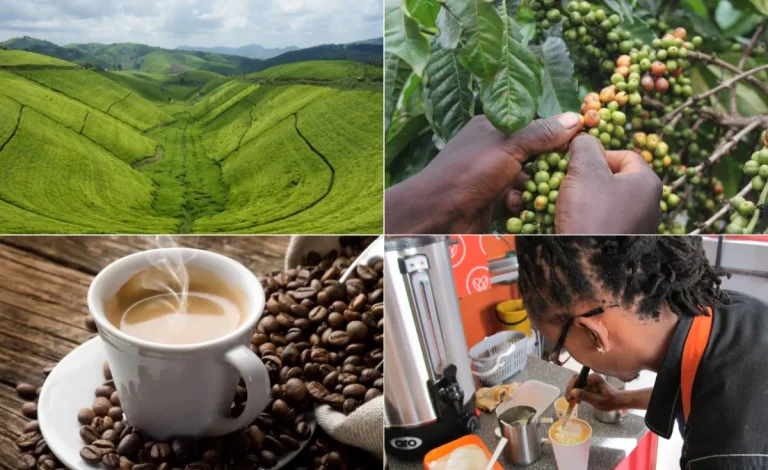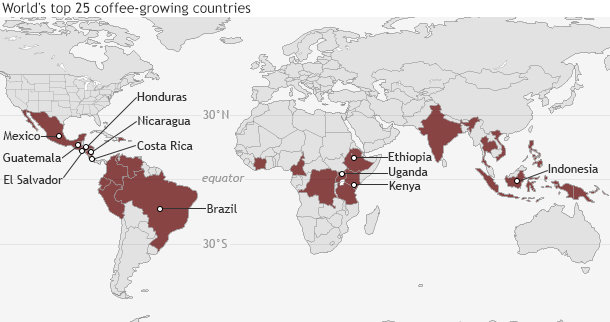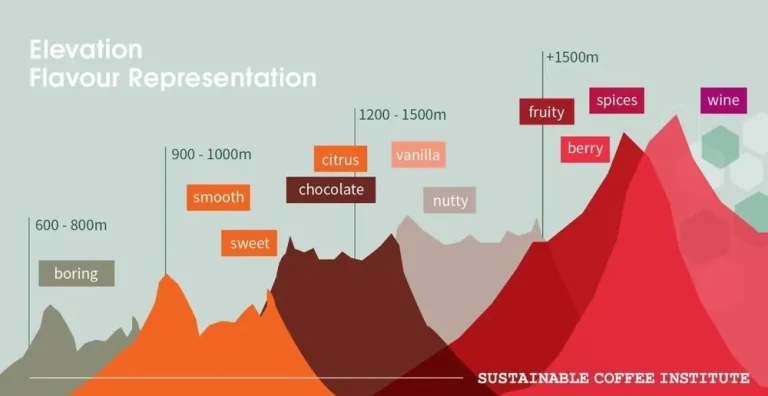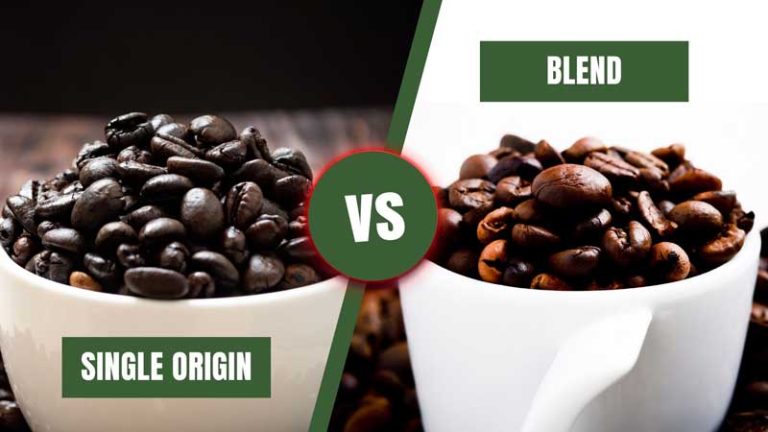From the bustling streets of Italy to the serene coffee ceremonies in Ethiopia, the world is united by its love for coffee.
In this article, we will explore the diverse coffee cultures that exist around the globe, from the birthplace of espresso culture in Italy to the bold flavors of Vietnamese coffee.
Come with us on a journey through the rich history and traditions of coffee in countries like Turkey, the United States, Japan, Greece, Sweden, and France.
Discover how different countries enjoy their brew and how these unique coffee cultures unite us all.
Key Takeaways:
- Coffee is more than just a beverage, it is a cultural experience that varies around the world.
- Italy, Ethiopia, Turkey, United States, Vietnam, Japan, Greece, Sweden, and France all have unique coffee traditions that reflect their history and values.
- From traditional coffee ceremonies to modern specialty coffee, the diverse coffee cultures of the world are united by their love and appreciation for this beloved brew.
Coffee Cultures Around the World: How Different Countries Enjoy Their Brew
Explore the diverse coffee cultures across the globe and delve into how different countries have unique ways of enjoying their favorite brews, reflecting their traditions, flavors, and brewing techniques.
Coffee holds a special place in the hearts of people worldwide, serving not merely as a drink but as a cultural symbol deeply ingrained in daily life. In Italy, the espresso reigns supreme, with a quick shot of intense flavor representing a moment of pause in the bustling day. In Japan, the meticulous art of pour-over brewing celebrates precision and simplicity.
Turkey embraces coffee as a symbol of hospitality, serving rich and strong Turkish coffee in tiny cups for social gatherings. Meanwhile, in Ethiopia, the birthplace of coffee, traditional coffee ceremonies symbolize community and connection.
Introduction to Global Coffee Traditions
Embark on a journey to explore the rich tapestry of global coffee traditions, from the birthplace of espresso in Italy to the bold flavors of Brazilian coffee and the intricate ceremonies of Ethiopian brews.
As you delve into the coffee cultures around the world, you will encounter a wide range of brewing methods that reflect the unique tastes and preferences of each region. In Turkey, the preparation of strong, thick coffee in a traditional cezve adds an element of ritualistic charm to coffee consumption, while in Japan, the meticulous process of pour-over brewing highlights the emphasis on precision and simplicity.
Across Europe, coffee is savored in cozy cafes, with Spain’s cortado and Austria’s melange offering distinctive takes on coffee with milk. In Vietnam, the iconic egg coffee stands out for its creamy texture and rich taste, showcasing the creativity and innovation in coffee concoctions.
Types of Coffee Machines
Coffee machines come in various types, each catering to different brewing methods and preferences, ranging from classic espresso makers to modern nitro machines.
In terms of espresso machines, they are known for producing strong, concentrated coffee by forcing hot water through finely-ground coffee beans at high pressure.
On the other hand, pour-over devices offer a more hands-on approach to brewing, allowing the user to control the water flow and extraction process.
Cold brew systems, popular for their smooth and low-acidic results, involve steeping coarse coffee grounds in cold water for an extended period.
Each type of coffee machine brings its unique set of features and benefits, suited for different brewing techniques and flavor profiles.
Overview of Coffee Culture Worldwide
The global coffee culture is a vibrant tapestry of traditions, flavors, and rituals, showcasing the diverse ways in which different countries embrace the art of coffee consumption.
From the bustling streets of Italy where espresso reigns supreme to the tranquil coffee ceremonies in Ethiopia that symbolize community and respect, coffee is deeply entrenched in the social fabric of numerous cultures.
In Japan, the meticulous process of brewing pour-over coffee is elevated to an art form, emphasizing precision and attention to detail.
Specialty coffee connoisseurs flock to the Scandinavian countries for their light roasts, while in Turkey, the preparation of strong, thick coffee is a symbol of hospitality and tradition.
Italy: The Birthplace of Espresso Culture
Italy stands as the birthplace of espresso culture, where the rich aroma of finely roasted beans and the art of latte creation converge in a timeless tradition that has captivated coffee enthusiasts worldwide.
Italian coffee traditions trace back to the 16th century when Venice introduced the concept of coffeehouses, known as ‘botteghe del caffe.’ These establishments quickly became social hubs where intellectuals, artists, and locals gathered to discuss politics, art, and literature over steaming cups of espresso.
The significance of coffee in Italian society goes beyond mere consumption; it symbolizes relaxation, conversation, and the essence of dolce far niente. This concept of savoring the moment while enjoying a cup of meticulously brewed espresso reflects the Italian approach to life.
Ethiopia: The Ritual of Coffee Ceremonies
Ethiopia embraces the coffee ceremony as a deeply ingrained cultural tradition, where the brewing of flavorful Ethiopian beans and the aromatic experience of coffee consumption become integral parts of communal rituals and celebrations.
In Ethiopian culture, the coffee ceremony is not merely about preparing a hot beverage but rather about fostering connections and honoring guests.
The symbolic significance of the coffee ceremony goes beyond just the act of brewing; it represents respect, hospitality, and community among the participants.
Traditionally, the process involves three rounds of brewing known as ‘stambela,’ each serving a specific purpose in the ritual.
Through these brewing sessions, the rich aromas and flavors of Ethiopian coffee unlock a sensory journey that captivates both locals and visitors alike.
Turkey: Rich History and Timeless Tradition
Turkey boasts a rich history and a timeless coffee tradition that intertwines with elaborate coffee ceremonies, where the strong aroma of Turkish coffee and the intricate brewing process reflect the cultural heritage of the region.
These age-old practices have been passed down through generations, with each step in the brewing process holding symbolic significance. From the meticulous grinding of the coffee beans to the careful pouring of the steaming liquid into traditional ornate cups, every detail is part of a cherished ritual.
The mesmerizing process of preparing Turkish coffee is not just about the drink itself, but also about creating connections and fostering social bonds. It’s a symbol of hospitality and friendship, with the serving of coffee being a sign of warm welcome and respect.
United States: The Rise of Specialty Coffee
The United States has witnessed a surge in specialty coffee culture, marked by the proliferation of innovative brewing methods, unique flavor profiles, and a thriving coffee scene that caters to diverse preferences and evolving trends.
This specialty coffee movement has seen coffee enthusiasts and connoisseurs experimenting with alternative brewing techniques such as pour-over, Aeropress, and cold brew, allowing for a more personalized and nuanced coffee experience. The emphasis on flavor diversity has led to increased popularity of single-origin beans, showcasing the distinct characteristics of different regions and coffee varieties. Beyond just a beverage, coffee has become a symbol of a cultural lifestyle choice for many Americans, shaping social interactions and daily rituals.
Vietnam: Bold Flavours of Vietnamese Coffee
Vietnam boasts bold flavors in its coffee culture, with the aromatic Vietnamese brews offering a unique sensory experience that blends the country’s rich history with the artistry of coffee roasting and brewing.
The distinctive flavors of Vietnamese coffee are deeply rooted in the country’s history, dating back to the French colonial era when coffee was introduced to Vietnam. Today, Vietnamese blends are renowned for their intense and robust taste, often characterized by a hint of chocolatey sweetness and a smooth, caramel-like finish.
One of the most iconic Vietnamese coffee variations is the famous ca phe sua da, a decadent concoction of strong Vietnamese coffee combined with sweetened condensed milk, served over ice, creating a delightful balance of flavors and textures.
Japan: The Art of Precision and Pairing
Japan exemplifies the art of precision and coffee pairing, where the meticulous Kyoto-style brewing techniques and the harmonious coffee flavor combinations reflect the cultural reverence for perfection and sophistication in coffee craftsmanship.
Every step in the process of preparing coffee in Japan is carefully thought out and executed with intention. From the selection of beans to the grinding, brewing, and serving, each stage is imbued with a sense of meticulous care and attention to detail.
The Kyoto-style slow-drip brewing method, known for its elegant design and precise control over the extraction process, results in a coffee that is smooth, flavorful, and free of any bitterness. This technique highlights the delicate nuances of the beans, allowing their true essence to shine through.
Greece: Tradition and Ellinikos Kafés
Greece cherishes its coffee tradition through the iconic Ellinikos Kafés, where the strong aroma of Greek coffee blends and the traditional rituals of coffee preparation epitomize the enduring cultural significance of coffee in Greek society.
One cannot underestimate the role of Ellinikos Kafés in fostering a deep sense of community among the Greeks. Greek coffee culture is not just about the drink itself but about the connections and conversations it nurtures. It’s a ritual that transcends mere caffeine consumption; it’s a way of bonding and sharing moments with loved ones. The brewing process, from heating the water to the slow simmering of the coffee grounds, is a labor of love steeped in tradition.
Sweden: Coffee and Pastries
Sweden celebrates the union of coffee and pastries as a cherished cultural tradition, where the aromatic Swedish brews and delectable pastries create a delightful sensory experience that captures the essence of Swedish coffee culture.
In Sweden, the appreciation for coffee extends beyond just a morning ritual; it is deeply embedded in the fabric of everyday life. The enchanting aroma of Swedish coffee blends wafts through cozy cafes and bustling city squares, providing a warm invitation to indulge in a moment of relaxation and connection.
The art of pastry pairing is elevated to an exquisite level in Swedish culture, where each delicate treat is carefully crafted to complement the rich flavors of the coffee. From cinnamon buns to almond cakes, every pastry is a testament to the country’s culinary expertise.
These traditions have deep historical roots, intertwining with the social fabric of Swedish society. Coffeehouses have long been centers of intellectual discourse and community gatherings, making coffee and pastries not just a culinary delight but also a symbol of unity and camaraderie.
France: Elegance and Sophistication
France embodies elegance and sophistication in its coffee culture, where the rich aroma of French roasts and the artful espresso brewing techniques reflect the refined taste and cultural flair associated with French coffee traditions.
The French take great pride in their coffee rituals, with a focus on quality and precision in every cup. From the meticulous selection of beans to the carefully crafted blends, each step in the process is a celebration of artisanal practices. The sensory journey of a French coffee experience is akin to a symphony of flavors dancing on your taste buds. It’s a historical legacy that dates back centuries, intertwining with the fabric of French society and influencing the very essence of social gatherings and intellectual discourse.
Conclusion: Diverse Coffee Cultures Unite
The diverse coffee cultures worldwide converge to form a rich tapestry of traditions, flavors, and brewing techniques, uniting different countries through their shared love for the aromatic and invigorating essence of coffee.
Each sip of coffee tells a unique story, from the bold and intense espresso shots in Italy to the delicate and nuanced pour-over brews in Japan. Coffee serves as more than just a pick-me-up; it is a cultural symbol deeply ingrained in the social fabric of communities around the globe.
Whether enjoying a traditional Turkish coffee ceremony or savoring a trendy cold brew in a bustling cafe in New York City, the passion for coffee binds individuals together, fostering connections and sparking conversations that transcend boundaries.
Frequently Asked Questions
What are some unique coffee cultures around the world?
Some unique coffee cultures around the world include Turkish coffee, Vietnamese coffee, and Ethiopian coffee ceremonies.
What is Turkish coffee and how is it enjoyed?
Turkish coffee is a strong and dark brew that is traditionally made in a cezve, a small copper pot. It is enjoyed by slowly sipping and savoring the rich flavors.
How is Vietnamese coffee different from other types of coffee?
Vietnamese coffee is known for its use of sweetened condensed milk and a specific type of robusta beans, which give it a unique and sweet flavor.
What is an Ethiopian coffee ceremony?
An Ethiopian coffee ceremony is a traditional ritual in which coffee beans are roasted, ground, and brewed in front of guests. It is a social event that celebrates the country’s coffee culture.
How do Italians typically enjoy their coffee?
Italians are known for their love of espresso and often enjoy it as a quick shot at a cafe or as a part of their daily routine with friends or family.
What is the most popular way to drink coffee in Japan?
In Japan, drip coffee or pour-over coffee is a popular method of enjoying their brew. It is often served in small cups and can be found in both traditional tea houses and modern coffee shops.
